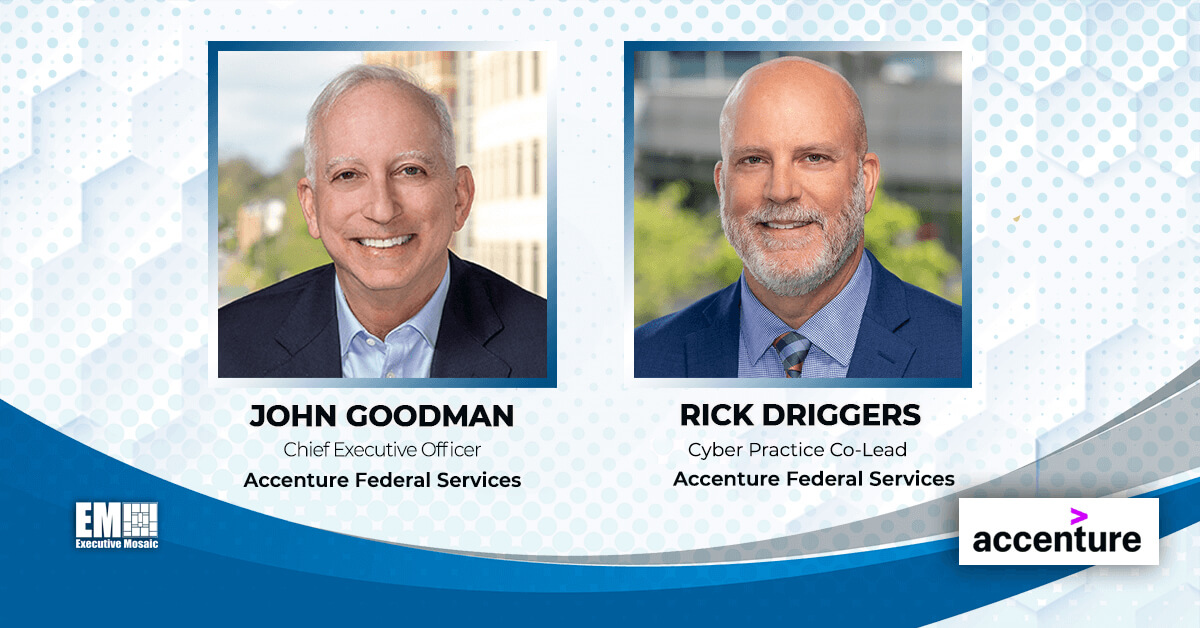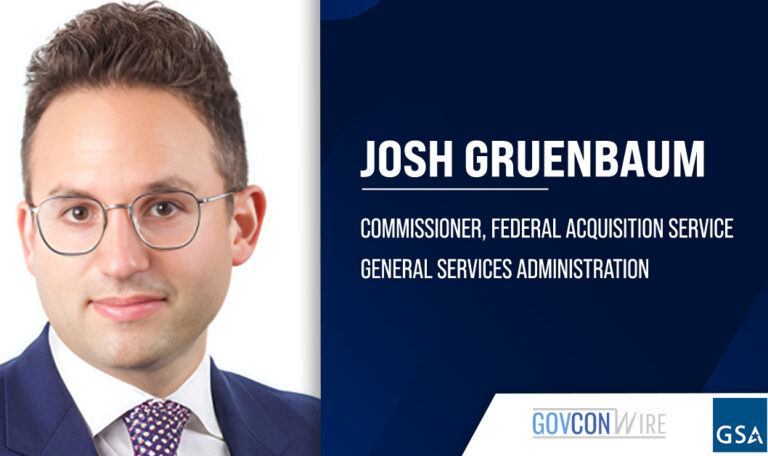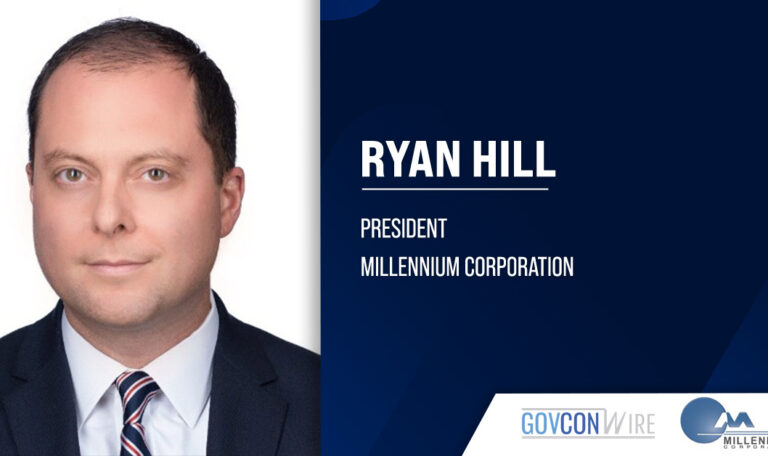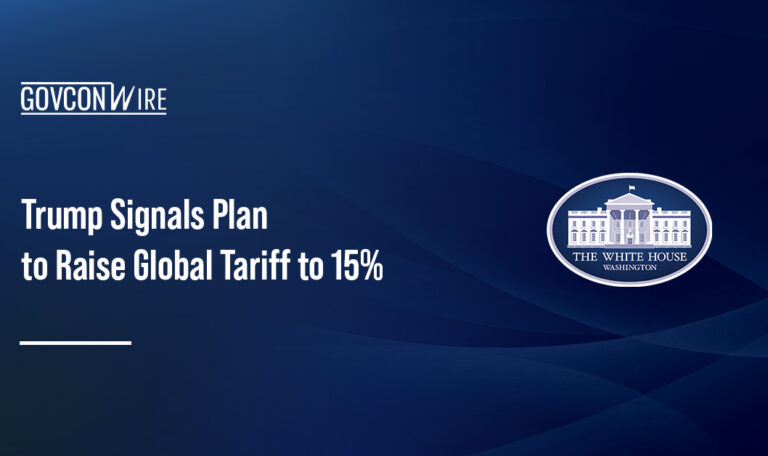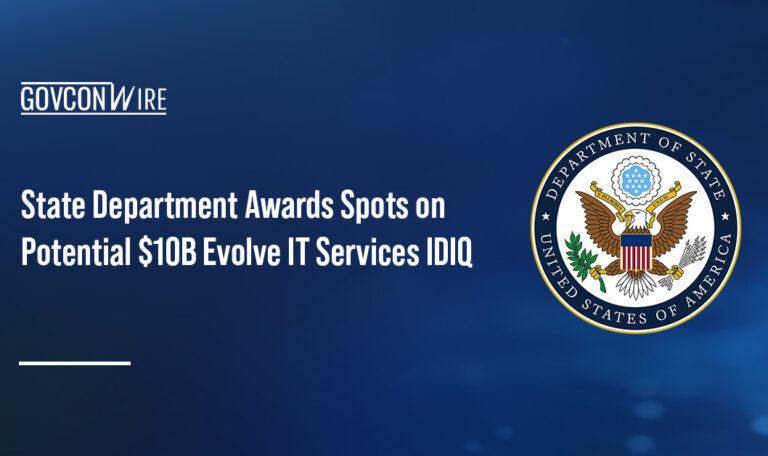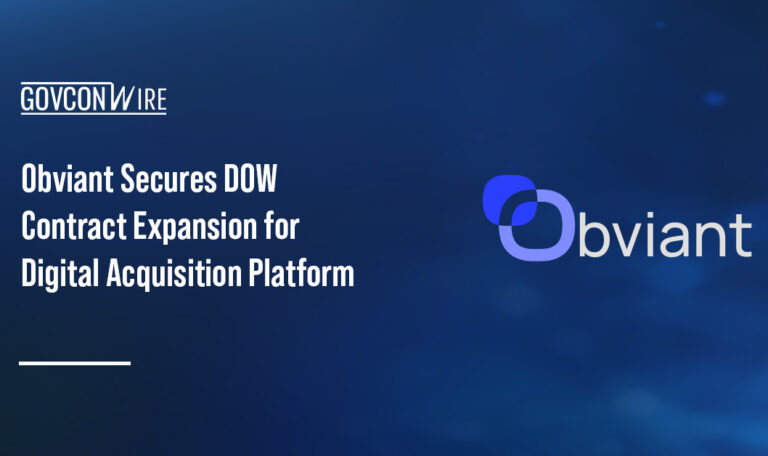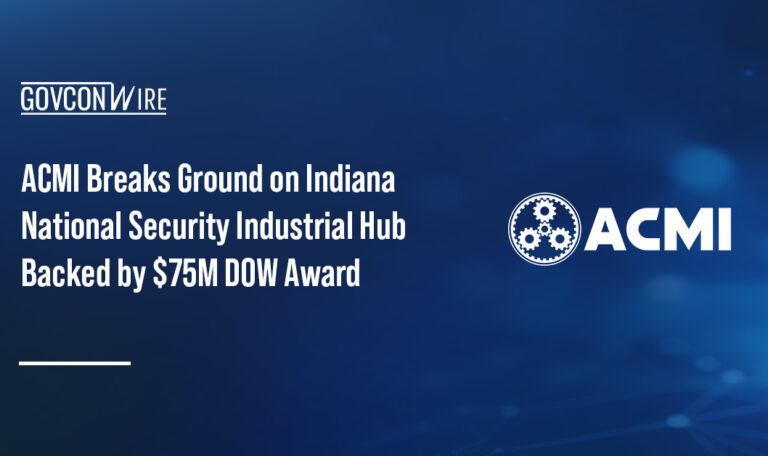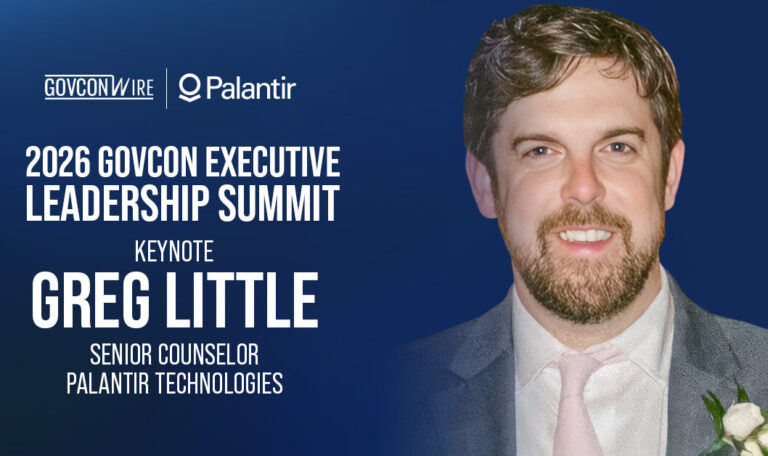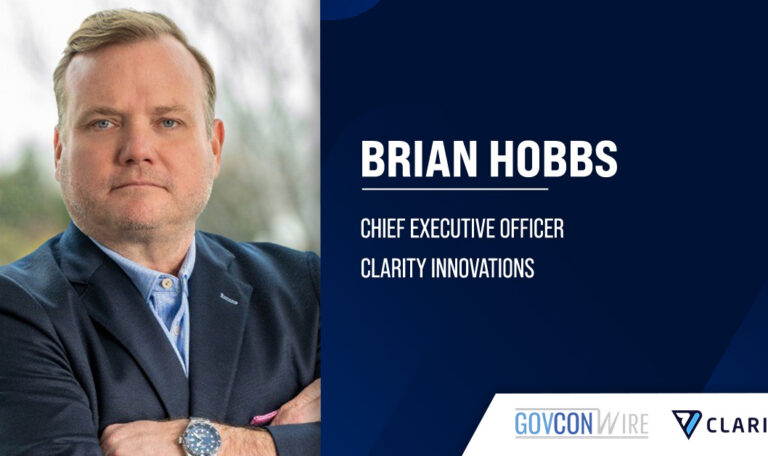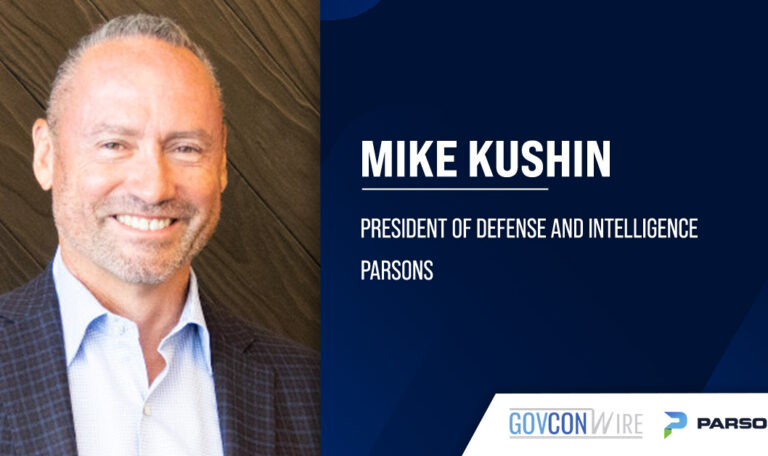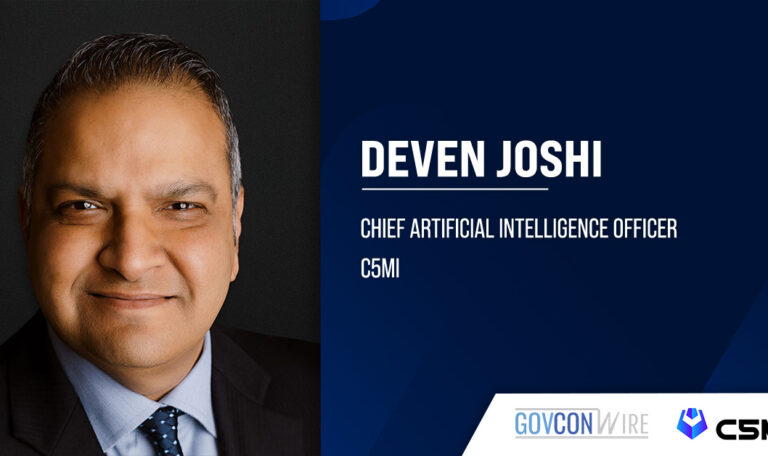The cybersecurity landscape across the globe is changing as new technologies and threats emerge. Now, public and private sector leaders are looking to artificial intelligence tools and technologies to shore up their cyber capabilities and better protect their important data and assets.
Executive Mosaic sat down with Accenture Federal Services CEO John Goodman and Cyber Practice Co-Lead Managing Director Rick Driggers to discuss the changes they’re seeing in cyber and learn more about how the company’s partnership with Google is helping to solve urgent cyber challenges.
Goodman, a six-time Wash100 Award winner, has served as Accenture Federal Services’ top executive for more than six years, and he’s been with the company for more than two decades. Driggers came to Accenture Federal Services from the Cybersecurity and Infrastructure Security Agency, where he served as assistant director for the agency’s Integrated Operations Division.
In this interview, Goodman and Driggers’ combined cyber and leadership expertise help to illuminate what’s on the horizon in the cybersecurity realm and the ways in which Accenture Federal Services can help federal agencies adapt to urgent needs and threats.
To set the scene for our conversation, Rick can you give me a quick overview of the cyber landscape? What are the major trends, factors and threats shaping cybersecurity today?

Driggers: I see three trends across the cyber landscape. These trends are not necessarily new, but they’re pushing our federal clients in new directions because of the environment that we’re currently in. The first is obviously the cyber workforce. All of the effort that the federal government has put into this over the past several years has really not closed the gap. In fact, the talent gap continues to widen. This is pushing federal departments and agencies to rethink how they’re leveraging shared services and how they’re managing their security operations centers. That’s really due to the challenges to recruit, hire and retain enough cybersecurity analysts and operators.
Secondly, there are also new technologies, like generative AI, machine learning systems and large language models, or LLMs, that are changing the way that our analysts, engineers and operators work. Right now, those individuals work in silos, but these technologies will push them to integrate their work effort so they can deliver tailored tools and fully data-driven analysis and get us to a point where we can conduct proactive cybersecurity operations.
And finally, the threat landscape, which has changed drastically over the last couple of years because of changes in threat actor tactics and operations, as well as a rise in geopolitical tensions throughout the world. Threat actors are no longer operating independently. They’re improving their tactics around how they steal credentials and create zero-day exploits. Their ability to buy easily deployable exploits at marketplaces on the dark web adds significant speed to the cyber targeting and attack cycle at unprecedented levels.
And we can’t talk about the threat landscape without talking about ransomware. Ransomware attacks are at a crisis level. We’ve seen the nature of ransomware attacks change from a pay-to-decrypt tactic to more of a focus on data theft and business disruption.
John, in October, Accenture Federal Services announced the launch of a new Cybersecurity Center of Excellence with Google Public Sector. What is your vision for this new COE, and how will it help solve some of those cyber issues we just talked about?

Goodman: We’re extremely excited to launch a Federal Cybersecurity Center with Google. It’s part of an expanded alliance that brings together Mandiant’s threat intelligence platform and our own full spectrum cybersecurity services so that we can help our federal agency clients wherever they operate, whether it’s at the edge, in their data centers or in the cloud. The combination of Mandiant’s threat intelligence and Google Cloud’s AI-powered tools with our human-centered cyber services will help keep our clients ahead of the sophisticated cyberattacks that Rick was noting and protect their most important data.
This Center is part of a broad relationship that Accenture, our parent company, has with Google. Accenture and Google Cloud have been partnering together on a global basis since 2018 to help clients build a strong digital core. With Google’s recent acquisition of Mandiant, this now enables us to take that threat intelligence capability to directly support our clients.
Can you both talk about your partnership with Google? What strengths do both companies bring to the table, and how will the partnership benefit your government customers?
Driggers: There’s a lot at play here. We’re talking about generative AI, machine learning and LLMs, which all rely on data. Bringing all of that data in your environment to the forefront is going to drastically improve a federal agency’s data readiness. For such a long time, when we talked about data, particularly as it relates to cybersecurity, we talked about cyber threat intelligence. What we’re going to be able to do now is bring all of that data to life within an agency, and not just the threat component, but also business intelligence data such as suppliers, financial, and your digital ecosystem, which will provide insights into how you view your cyber posture and how you’re measuring and managing your cyber risks.
We will now be able to move towards unprecedented and proactive measures in vulnerability detection, risk mitigation and enterprise visibility across your information technology, Internet of Things and operational technology assets. Mandiant has a sophisticated threat intelligence platform that allows us to provide services for attack surface management, the integration of chat AI, content AI and machine learning to improve the accuracy, and the speed of threat identification and response.
Goodman: For context, Accenture Federal Services is a professional services company. We serve every federal Cabinet-level agency and many others, and we have supported them in many of their most critical mission areas, whether that’s healthcare, education, finance or national security. Being part of global Accenture, one of the capabilities we have is to bring our federal clients access to the technologies and the insights that are used by the largest global commercial firms. Our ability to deliver solutions that have worked at a proven scale is one of the reasons why federal agencies turn to us. That’s as true in cyber as it is in every other aspect of what we do, whether it’s analytics, cloud or helping them implement enterprise-level platforms. So, with this Center of Excellence, we combine Google’s threat intelligence capability with our experienced professionals who have been supporting federal clients in cyber and all other aspects of the digital core for quite some time.
Rick, data is becoming increasingly critical toward improving cybersecurity. Can you elaborate?
Driggers: Data is messy, it’s complex, it’s frustrating to operators and analysts. In the past, those challenges didn’t attract the attention of leaders, but that’s changing. Accenture recently released a survey called The Pulse of Change, and we found that most c-suite executives identify getting their data strategy right as one of the most significant challenges they faced when adopting AI strategies. It is a significant challenge in the federal mission space as well, regardless of the agency.
Now that this is getting more attention, I have hope that leaders in the federal sector will start to realize the value of the data they have and begin making investments which will ultimately enhance their enterprise cybersecurity because they will understand their enterprise more than they do now. Leaders will be able to use LLMs, particularly as relates to threat identification or threat emulation. They will be able to use synthetic data to be a lot more predictable about how they’re identifying threats and how they’re responding. The partnership between Accenture Federal Services and Google Public Sector provides our federal clients with innovative, data-first, human-centered security capabilities that unlocks more value of their data across the enterprise.
John, how will the Federal Generative AI Center of Excellence that Accenture Federal Services launched earlier this year dovetail with the new Cybersecurity Center of Excellence with Google Public Sector?
Goodman: The way we see it is that Generative AI is a technology; cybersecurity is a mission. Our Federal Generative AI Center is focused on designing prototypes, scaling prebuilt solutions and accelerators, and applying generative AI models to the real world and the mission-critical challenges that our federal agency clients face every day. As part of that Center, we launched FedGPT, which is a suite of generative AI tools that adapt LLMs and foundation models to specific federal agency use cases. So, as Rick noted, the connection between the two Centers is that we can bring our generative AI capabilities to the cybersecurity mission using Mandiant’s threat intelligence capabilities and other sources to help our clients identify and respond to the cybersecurity challenges that we face.
Driggers: Generative AI is a tech accelerator, particularly in cybersecurity, with which we can help clients automate cybersecurity response and cybersecurity analytics, build scripts and more. It’s really changing the way cybersecurity is conducted at scale across all domains.


